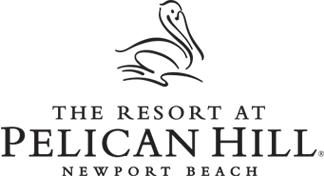California Golf Resort Hits Hole in One With Outdoor Water Efficiency Efforts


HIGHLIGHTS
- Water savings: More than 48 million gallons, 18 percent from 2009 to 2010
- Cost savings: $75,000 from 2009 to 2010
- 100 landscaped acres; 50,000 acres preserved land
PROJECT SUMMARY
With preserved land accounting for more than 99 percent of The Resort at Pelican Hill’s total irrigable acres and an ocean view attracting visitors, water conservation goes hand in hand with the resort’s land stewardship efforts and its stake in protecting the area’s most valuable asset — the Pacific Ocean.
The Newport Beach resort’s 100-acre landscape is maintained by ValleyCrest Landscape Companies, Inc., which oversaw five landscaping companies during the original landscape and irrigation system installation at Pelican Hill. In 2010, ValleyCrest refined the resort’s irrigation components and implemented other measures to increase its outdoor water efficiency. With its help, the resort has successfully reduced its water use and operating costs with WaterSense labeled weather-based irrigation controllers, drip irrigation, high-efficiency rotating nozzles, drought-tolerant plant selections, turf reduction, recycled municipal water, rainwater collection for golf course irrigation, and regular irrigation system maintenance.
Native Plants Stay True to Local Roots
In 2009, ValleyCrest incorporated drought-tolerant plants throughout the property and strategically limited turf to 6 to 8 percent of the site—for use in essential areas where events such as weddings take place. Ninety percent of the landscape located away from guest rooms is irrigated with recycled water purchased through WaterSense partner Irvine Ranch Water District’s (IRWD) Water Recycling Program. To increase these water savings in 2010, ValleyCrest separated tree species from turf into micro-zones based on their watering requirements and replaced flowers with water-smart succulents in hundreds of planters throughout the resort. The Professional Landcare Network (PLANET) honored ValleyCrest with a 2010 PLANET Merit Award for achieving landscape water efficiency while maintaining aesthetics at Pelican Hill.
Smart Controllers and Nozzles Water Smarter
The resort’s WaterSense labeled controllers use the Internet to access local weather data and landscape conditions to program water schedules based on plants’ needs. They also generate regular reports, as well as send automatic alerts to operations and maintenance personnel based on the system’s flow sensors. These controllers’ remote capabilities allow staff to adjust the system from their computers, reducing labor and fuel costs. Pelican Hill’s controllers, for example, self-adjust daily based on temperature, wind, humidity, and solar radiation.
In 2010, ValleyCrest installed drip irrigation in some of the landscape’s plant beds and high-efficiency rotating nozzles in other areas, after which it reprogrammed Pelican Hill’s controllers to factor in resort-specific plants (e.g., tree micro-zones), new irrigation emission devices, slopes, shade, and sun exposure. To sustain—and deepen—these savings, ValleyCrest performs monthly irrigation inspections and weekly water meter readings. Based on the savings Pelican Hill saw between 2009 and 2010—much of which can be attributed to the use of WaterSense labeled controllers—ValleyCrest estimates the smart controllers will pay for themselves in approximately three years.
Staying Within a Water Budget
In additional to controller-generated data, Pelican Hill receives monthly water budget reports as an IRWD customer. Customers exceeding a preset number of gallons per month are charged an increased water rate to accommodate the extra water IRWD must purchase to meet demand. Not only has Pelican Hill never exceeded its IRWD water budget, but the resort’s total water use has remained 20 percent beneath budget, on average.
Going Green on the Green
A water management system was installed on the resort’s two golf courses with the help of Orange County Coastkeeper, a local nonprofit working to protect oceans and other bodies of water. 1 Five underground rainwater cisterns collectively holding 5 million gallons of water capture runoff that is then used to irrigate Pelican Hill’s golf courses. Each cistern is emptied within 10 days following a storm in order to continue capturing rain runoff throughout rainy seasons. A full-time water quality manager monitors and maintains the system to ensure that it saves more than 50 million gallons of water per year; reduces the amount of debris and contaminants in the water; and successfully captures and recycles runoff. 2
On hole 12 of the Ocean South course, a water diversion system captures runoff from a portion of the golf course, as well as from Pacific Coast Highway and two nearby Newport Coast neighborhoods. The water is sent to the City of Newport Beach’s water reclamation station, rather than working its way to the ocean. 3
Acknowledgements
The U.S. Environmental Protection Agency’s (EPA’s) WaterSense program acknowledges ValleyCrest Landscape Companies Director for Water Management Solutions Richard Restuccia for providing information for this case study.
Learn More
To learn more about water efficiency in commercial and institutional buildings, visit the WaterSense website at www.epa.gov/watersense/commercial to access WaterSense at Work best management practices, tools, case studies, and more.
1 “Pelican Hill Honored as Green Golf Resort.” The Orange County Register. www.ocregister.com/articles/golf-340850-water-pelican.html
2 Starr, Kate. “Sustainability at Pelican Hill.” www.pelicanhill.com/files/Sustainability.pdf.
3 “Pelican Hill Honored as Green Golf Resort.” op cit

